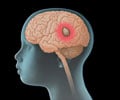World Brain Tumor Day is observed annually on June 8 to generate heightened global awareness about this disease.
- Brain tumors do not discriminate based on age, as they can affect individuals of any age group
- World Brain Tumor Day, celebrated annually on June 8, aims to raise global awareness about brain tumors
- This day presents an exceptional opportunity for the entire community to pay tribute to the resilience of individuals impacted by these tumors and make a difference in their lives
Let's spread awareness about Brain Tumor
Go to source). In the fight against brain tumors, raising awareness, early detection, prompt treatment, and proper follow-up care play a vital role, greatly enhancing the prospects of survival. Hence, Global day also focuses on educating individuals about the initial symptoms of brain tumors and the importance of seeking prompt medical attention to prevent further harm (2✔ ✔Trusted Source
World Brain Tumour Day, 2023: Symptoms, Treatment and Prevention
Go to source,3✔ ✔Trusted Source
World Brain Tumour Day
Go to source).
Read More..
Into the Unknown: Exploring the Depths of Brain Tumors
Brain tumors occur due to abnormal proliferation of neural cells, that can arise either from neural elements within the brain or as a result of cancer spreading from other organs (1✔ ✔Trusted SourceLet's spread awareness about Brain Tumor
Go to source). The impact of brain tumors on the nervous system varies depending on their location and rate of growth (3✔ ✔Trusted Source
World Brain Tumour Day
Go to source).
They can be either cancerous (malignant) or noncancerous (benign) – irrespective of it, these tumors can have significant impacts on normal brain function (1✔ ✔Trusted Source
Let's spread awareness about Brain Tumor
Go to source).
Primary brain tumors include gliomas, meningiomas, pituitary adenomas, and acoustic neuromas, that develop within the brain itself. On the other hand, secondary brain tumors, or brain metastasis, occur when cancer cells from other organs, like the lungs, colon, kidneys, or breasts, spread to the brain, making them more prevalent than primary brain tumors (2✔ ✔Trusted Source
World Brain Tumour Day, 2023: Symptoms, Treatment and Prevention
Go to source).
In India, the incidence of central nervous system (CNS) tumors ranges from 5 to 10 per 100,000 people, with a rising trend, constituting 2% of all malignancies. The manifestations of brain tumors can be nonspecific, including symptoms like headaches, altered mental status, nausea, vomiting, weakness, gait disturbance, seizures, visual changes, speech deficits, and focal sensory abnormalities (1✔ ✔Trusted Source
Let's spread awareness about Brain Tumor
Go to source).
Hence, early diagnosis is crucial for the effective management of the disease, while rehabilitation and support from loved ones play yet another vital role in ensuring the best possible outcomes for patients (1✔ ✔Trusted Source
Let's spread awareness about Brain Tumor
Go to source).
Unveiling the Legacy of World Brain Tumor Day
In 2000, the German Brain Tumor Association, also known as the "Deutsche Hirntumorhilfe e.V.," established this international day of remembrance as a heartfelt tribute to individuals and families affected by brain tumors. Annually observed on June 8, the day is celebrated with great pride worldwide to spread awareness and make a difference (4✔ ✔Trusted SourceWorld Brain Tumour Awareness Day
Go to source).
Each year, India grapples with more than 28,000 documented cases of brain tumors, resulting in a tragic toll of 24,000 lives lost to this formidable disease, as per statistics by the International Association of Cancer Registries (IARC) (5✔ ✔Trusted Source
What is brain tumour?
Go to source).
Recognizing the vital importance of World Brain Tumor Day, it is crucial to create widespread awareness and educate the population about this condition, emphasizing the urgency for early detection and effective treatments (5✔ ✔Trusted Source
What is brain tumour?
Go to source). Grey color ribbon is generally used to depict the support for the global day.
Busting the Brain Tumor Myths
Myth 1:
Receiving a non-malignant brain tumor diagnosis brings a sense of relief to both the person affected and their family (6✔ ✔Trusted SourceMyths About Brain Tumours
Go to source).
Truth 1:
However, the distinction between non-malignant and malignant tumors can be intricate, with some non-malignant tumors proving as serious as their malignant counterparts when located in challenging areas such as the brain stem. Regardless of the grade or stage, any brain tumor has a profound and transformative effect on individuals’ lives.Myth 2:
Every individual diagnosed with a brain tumor will experience identical symptoms.Truth 2:
In reality, each person’s journey and symptoms can vary significantly. While some may not initially show any signs, others may experience a gradual worsening of symptoms that eventually leads to a diagnosis, or alternatively, may suddenly develop symptoms.Myth 3:
Individuals diagnosed with a non-malignant brain tumor do not need chemotherapy.Truth 3:
However, in certain cases, chemotherapy may be necessary based on factors such as the person’s age, overall health, and the location and size of the tumor.Myth 4:
Life returns to "normal" for patients once they complete their treatment plan.Truth 4:
However, the end of treatment can evoke a range of emotions, including relief, happiness, anxiety, and uncertainty. And beyond treatment, individuals may need to adjust to a "new normal" depending on any long-term effects resulting from the treatment.Myth 5:
Brain tumors are a rare form of cancer.Truth 5:
In fact, they are the primary cause of solid cancer-related deaths among children under the age of 20, surpassing even acute lymphoblastic leukemia. Additionally, brain tumors rank as the third leading cause of solid cancer-related deaths in young adults aged 20-39.Unforgettable Facts You Need to Know!
-
Every day, 27 Canadians are diagnosed with a brain tumor, with approximately 55,000 Canadians currently living with the condition, highlighting the urgent need for awareness and support (7✔ ✔Trusted Source
Facts About Brain Tumours
Go to source) - The complexity of brain tumors is evident with over 120 different types, making effective treatment a challenging task
- The estimated incidence of primary brain tumors is 23.5 new cases per 100,000 population per year in certain regions of Canada
- Within the first year of diagnosis, the average patient with a brain tumor undergoes an extensive number of healthcare visits, including surgeries, radiation, chemotherapy, and blood work
- Brain tumors consist of abnormal cell growth within or around the brain, disrupting normal brain functions
- Non-malignant tumors comprise nearly two-thirds of all primary brain tumors, highlighting the need for comprehensive understanding and management
- Glioblastoma, the most common type of malignant brain tumor, typically has a poor prognosis, with an average survival rate of less than one year despite aggressive treatment
- Metastatic brain tumors, which occur in 20-40% of cancer patients, are increasing due to improved cancer survival rates
- Brain tumors are the leading cause of solid cancer death in children under the age of 20 and the third leading cause in young adults aged 20-39, underscoring the importance of targeted research and support for these age groups
Beyond Fate: Taking Control of Brain Tumour Prevention
Although it is difficult to combat this deadly disease, following lifestyle choices can play a role in potentially lowering the chances of acquiring a brain tumor, although prevention is not guaranteed due to multifactorial causes (2✔ ✔Trusted SourceWorld Brain Tumour Day, 2023: Symptoms, Treatment and Prevention
Go to source):
- Avoiding smoking and exposure to secondhand smoke is crucial, as smoking is a proven risk factor for various types of cancer, including brain tumors
- Minimizing radiation exposure and being mindful of occupational and environmental hazards can contribute to reducing the risk of developing brain tumors
- Genetic counseling and testing can provide valuable insights into potential hereditary factors and help individuals make informed decisions regarding their health
- Adopting a healthy lifestyle overall, including maintaining a balanced diet, regular exercise, and managing stress, can support overall well-being and potentially contribute to reducing the risk of brain tumors
References:
- Let’s spread awareness about Brain Tumor - (https://www.narayanahealth.org/blog/lets-spread-awareness-about-brain-tumor/)
- World Brain Tumour Day, 2023: Symptoms, Treatment and Prevention - (https://www.medicoverhospitals.in/articles/world-brain-tumour-day-2023)
- World Brain Tumour Day - (https://www.internationaldays.co/event/world-brain-tumour-day/r/recLZ417EVwSg0FWC)
- World Brain Tumour Awareness Day - (https://www.braintumour.ca/get-involved/raising-awareness/world-awareness-day/)
- What is brain tumour? - (https://www.narayanahealth.org/diseases/brain-tumour)
- Myths About Brain Tumours - (https://www.braintumour.ca/facing-a-brain-tumour/myths-about-brain-tumours/)
- Facts About Brain Tumours - (https://www.braintumour.ca/facing-a-brain-tumour/facts-about-brain-tumours/)
Source-Medindia
















